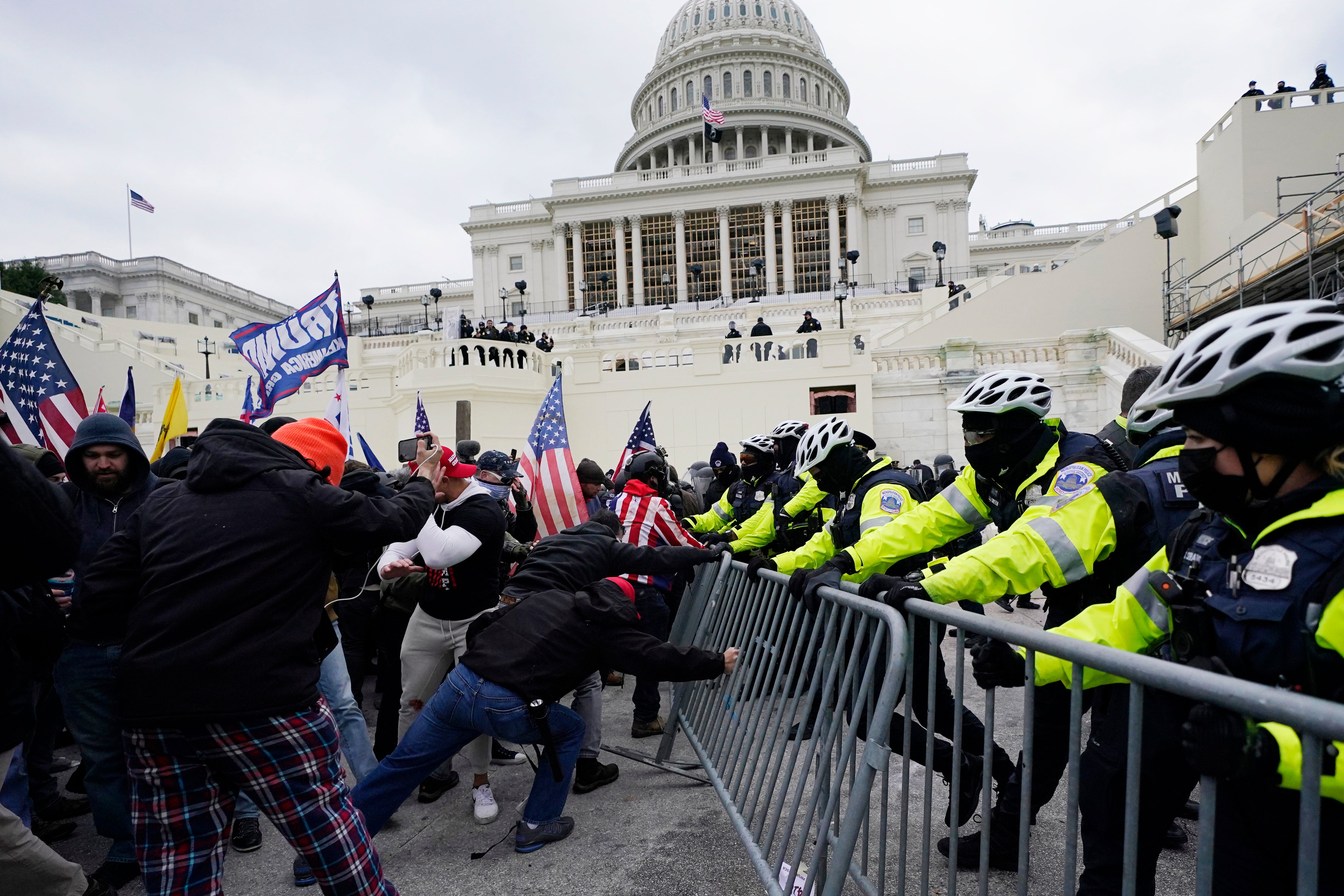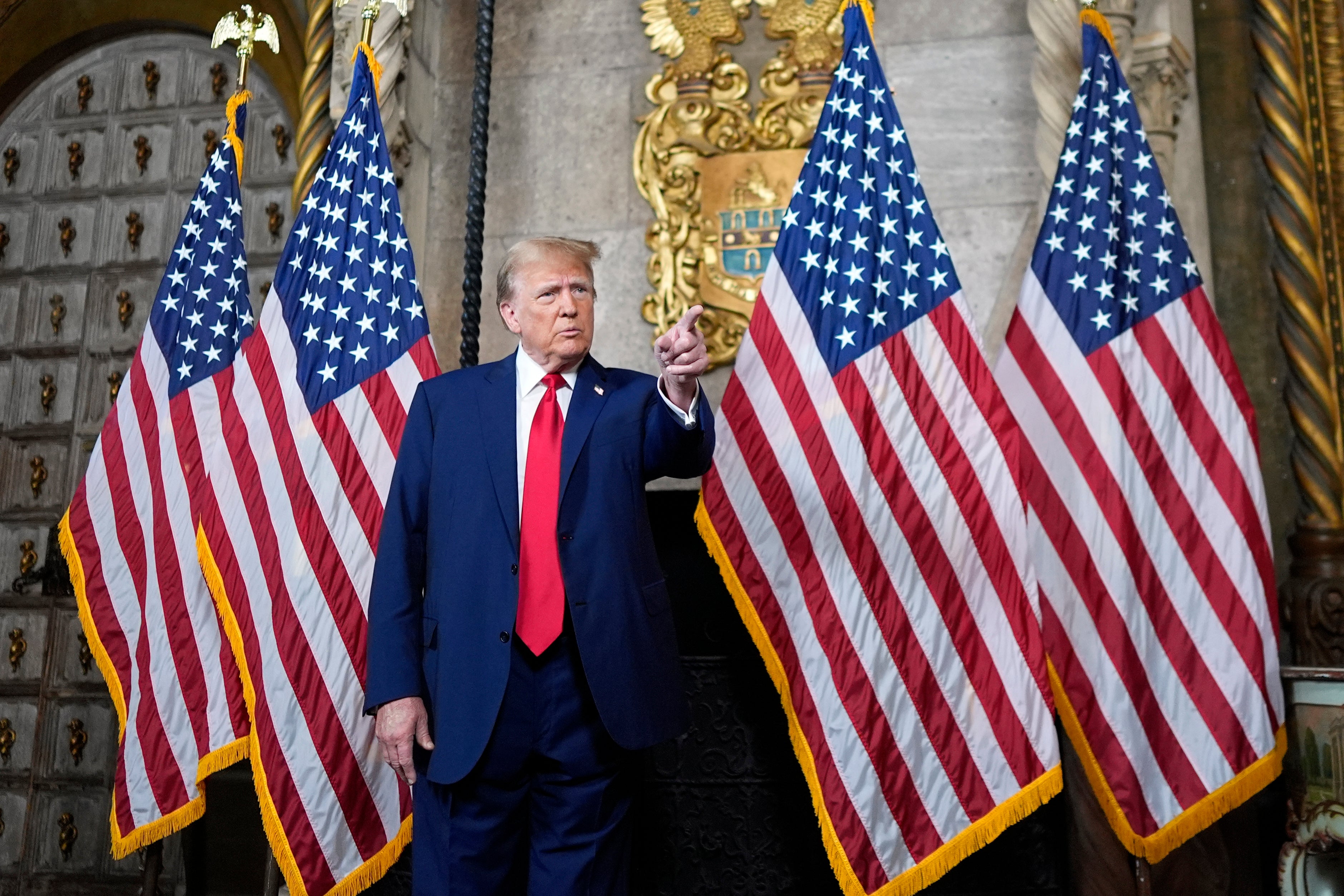The Supreme Court just gave insurrectionists a free pass to overthrow democracy
In a split ruling, five conservative justices decided that any candidate who tries to overthrow the government can still get elected, as long as they have the support of Congress. Alex Woodward reports


The US Supreme Court’s reversal of a landmark court decision in Colorado will keep Donald Trump on the state’s presidential election ballots and on the ballots in a handful of other states where he was also disqualified from the presidency under a constitutional clause barring insurrectionists from office.
It was a unanimous 9-0 decision from the justices, on its face. They agreed that individual states can’t unilaterally remove candidates for federal office from their ballots. But that’s about as far as they got to being on the same page.
Instead, what emerged was a 5-4 conservative majority decision that went far beyond that of the liberal minority, stating that only Congress can decide whether insurrectionists are disqualified from federal office. Any candidate who tries to overthrow the government can still get elected to the presidency – just so long as they have the support of the controlling political party in Congress.

In response, a seething opinion from the court’s three liberal justices warned that conservative justices have set a precedent that “attempts to insulate all alleged insurrectionists from future challenges to their holding federal office”. Outside of criminal courts, accountability for elected officials who “engaged” in the attack on the US Capitol on January 6 2021 – fuelled by then-president Trump’s bogus narrative of fraud and “rigged” elections – would be virtually impossible as long as Republican lawmakers hold sway.
Section 3 of the 14th Amendment – among civil rights amendments enacted in the volatile aftermath of the US Civil War – included a broadly written clause first aimed at preventing Confederates from returning to a government they were in rebellion against. Section 3 bars anyone who “engaged in insurrection or rebellion” from holding public office, a test that several courts and election officials across the US have argued that the former president failed.
It doesn’t explicitly spell out how that would be enforced, but five conservative Supreme Court justices have now determined that Congress must “prescribe” legislation to “ascertain” whether a candidate should be disqualified – legislation that does not exist and lawmakers are in no way in any rush whatsoever to pull together. Importantly, the Supreme Court’s decision here appears to ignore several historical cases involving post-war candidates who were disqualified under Section 3, and the likely hundreds of others who never made it past the simple fact that the constitution barred them from office, period.
On Monday, the court’s conservatives pointed to Section 5 of the 14th Amendment, which states that “Congress shall have power to enforce, by appropriate legislation, the provisions of this article”.
Section 3, however, already notes that a two-thirds majority vote in Congress can “remove” that disqualifying insurrectionist penalty. As the liberal justices asked, why would Congress – in the conservatives’ view – need a “special rule” to enforce only the insurrection clause?
“It is hard to understand why the Constitution would require a congressional supermajority to remove a disqualification if a simple majority could nullify Section 3’s operation by repealing or declining to pass implementing legislation,” they wrote.
The court’s liberal justices opened their opinion by quoting the conservative majority’s decision that struck down Roe v Wade back to them, reminding them that “if it is not necessary to decide more to dispose of a case, then it is necessary not to decide more”.
In the Colorado case, the conservative majority departed from that “fundamental principle of judicial restraint” with a decision that imperils future cases involving insurrectionists, and has “shut the door” on other ways to enforce a constitutional ban against insurrectionists in government.

Trump-appointed conservative Justice Amy Coney Barrett also departed from the five other conservative justices with her own brief concurring opinion, signalling that the court under Chief Justice John Roberts has veered into damaging precedent.
The case before the court “does not require us to address the complicated question whether federal legislation is the exclusive vehicle through which Section 3 can be enforced,” she argued. “This is not the time to amplify disagreement with stridency.”
Crucially, nothing about the ruling exonerates Mr Trump.
None of the justices wrote anything about the central premise of the case before them, in which the former president and current Republican frontrunner for the presidential election “engaged in insurrection” when he fuelled a mob to attack the US Capitol and try to overturn the election.
The court’s liberal justices appeared to suggest that they agreed with that, summarising their take on the case before them as to whether “Colorado may keep a Presidential candidate off the ballot on the ground that he is an oathbreaking insurrectionist and thus disqualified from holding federal office under Section 3 of the [14th] Amendment”.
“Section 3 serves an important, though rarely needed, role in our democracy,” they wrote. “The American people have the power to vote for and elect candidates for national office, and that is a great and glorious thing. The men who drafted and ratified the [14th] Amendment, however, had witnessed an ‘insurrection [and] rebellion’ to defend slavery. They wanted to ensure that those who had participated in that insurrection, and in possible future insurrections, could not return to prominent roles. Today, the majority goes beyond the necessities of this case to limit how Section 3 can bar an oathbreaking insurrectionist from becoming President.”
Mr Trump’s legal team will be returning to the nation’s highest court next month, when his lawyers will argue that he deserves “immunity” from prosecution for January 6-connected crimes, including conspiracy and obstruction.
He got exactly what he wanted from the Supreme Court in that case, with delays after delays thanks to his appeals and the Supreme Court’s slow walk of the “immunity “question.
Now, following Monday’s ruling from the justices, voters will be allowed to decide whether or not they want an “insurrectionist” in office – a label that the Supreme Court didn’t reject.
Join our commenting forum
Join thought-provoking conversations, follow other Independent readers and see their replies
Comments
Bookmark popover
Removed from bookmarks